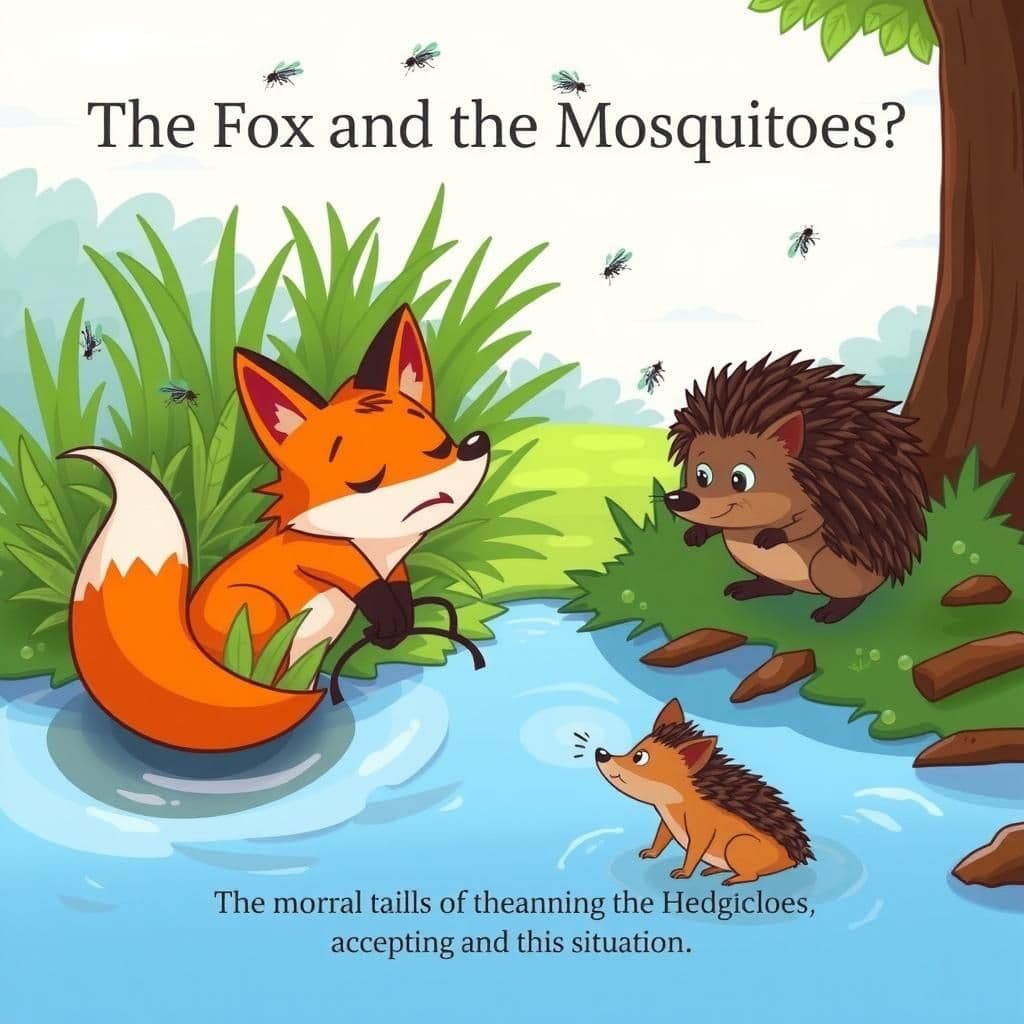The Fox and the Bramble

Story Summary
In "The Fox and the Bramble," a fox climbs a hedge but falls and grabs a bramble for support, only to be pricked and hurt. Accusing the bramble of being more harmful than the hedge, he learns that he should have expected pain from something that also causes it to others. This wisdom-packed moral story illustrates how selfish individuals often encounter selfishness in others, a common theme in well-known moral stories.
Click to reveal the moral of the story
The moral of the story is that seeking help from those who are inherently harmful or self-serving can lead to greater suffering.
Historical Context
This fable, attributed to Aesop, reflects themes of self-interest and the consequences of one's choices, common in ancient Greek storytelling. The tale has been retold in various forms, emphasizing moral lessons about accountability and the nature of relationships, highlighting how those who act selfishly often find themselves ensnared by their own decisions. Aesop's fables have had a lasting cultural impact, influencing literature and moral education throughout history.
Our Editors Opinion
This fable highlights the idea that seeking help from those who are inherently harmful or self-serving can lead to greater pain, a lesson that resonates in modern life where individuals often turn to toxic relationships or untrustworthy sources for support. For instance, someone might rely on a friend known for betrayal during a difficult time, only to find that their supposed ally takes advantage of their vulnerability, reinforcing the truth that one should be cautious about whom they trust in times of need.
You May Also Like

A Fatal Disorder
In "A Fatal Disorder," a dying man, shot and on the verge of death, confesses to the District Attorney that he was the aggressor in the altercation, defying the typical narrative of self-defense found in many well-known moral stories. His unexpected honesty leaves officials stunned, as they are more accustomed to distorted dying declarations, highlighting the value-based moral lessons often present in simple moral stories. As the Police Surgeon humorously notes, it is the truth itself that is ultimately killing him, underscoring the weight of accountability in these short tales with moral implications.

The Fox and the Mosquitoes
In this short and sweet moral story, a Fox finds its tail caught in a bush after crossing a river, attracting a swarm of Mosquitoes that feast on its blood. When a kind Hedgehog offers to help by driving the Mosquitoes away, the Fox declines, explaining that the current Mosquitoes are already full, and inviting new ones would only lead to a worse fate. This meaningful story teaches us that sometimes it is better to endure a lesser problem than to risk a greater one.

At Large - One Temper
In "At Large - One Temper," a turbulent individual is on trial for assault with intent to commit murder after wreaking havoc in town. The defendant's Attorney attempts to lighten the proceedings by asking the Judge if he has ever lost his temper, resulting in a fine for contempt of court, to which the Attorney humorously replies that perhaps his client has found the Judge's lost temper. This short story offers a meaningful exploration of anger and accountability, reminiscent of famous fables with moral lessons.
Other names for this story
Bramble's Revenge, Fox's Folly, Pricked Pride, Thorny Assistance, The Selfish Fox, Hedge of Deceit, Bramble's Lesson, Fox and the Thorn
Did You Know?
This fable highlights the theme of misplaced trust, illustrating how one can often turn to the wrong source for help, only to find that the helper is just as harmful as the original problem. It serves as a warning against relying on those who are inherently self-serving, reinforcing the idea that one's own choices can lead to further suffering.
Subscribe to Daily Stories
Get a new moral story in your inbox every day.